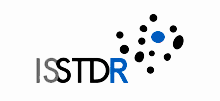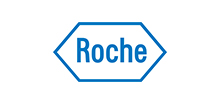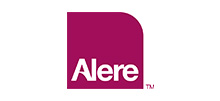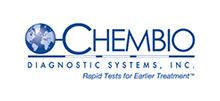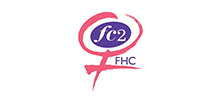On behalf of the Scientific Committee of STI & HIV World congress, thank you for submitting your work for presentation at the 22nd ISSTRD and the 18th IUSTI Conference in Rio de Janeiro, Brazil. We have an on-line submission and evaluation process administered by Activia; please take a moment to read the following simple guidelines.
All abstracts must be submitted on-line through the abstract submission system.
Abstract Submission Deadline: Sunday, January 15th, 2017, midnight GMT
Please use the sample abstract template provided below to prepare your abstract for submission using our on-line abstract submission system:
ABSTRACT TEMPLATE
ABSTRACT SUBMISSION GUIDELINES
• All submissions must be made online by January 15th, 2017.
• If an abstract is accepted for presentation, the first author must undertake to present it.
• All abstracts will initially be reviewed, graded and accepted or rejected by the Program Committee. The Committee reserves the right to determine whether an abstract submission is accepted as an oral presentation or a poster. The decision of the Committee is final.
• The presenting author will be required to register for the congress in order to have acceptance of the abstract confirmed.
Preparation of Abstracts:
• All abstracts must be submitted in ENGLISH
• Use Arial 12 point type only
• Use single spacing only
• Format – Microsoft Word (.doc or *.docx) files only
• Leave one line between paragraphs
• Specify all abbreviations in full at the first mention, followed by the abbreviation in parentheses. Use the abbreviation thereafter
• Check abstract thoroughly for spelling and grammar
• Do not include references
• Indicate preferred track
All abstracts must include:
TITLE:
Capitalized in BOLD at the top of the abstract, maximum 300 characters (space counts).
AUTHORS:
• Underline the name of the author who will be presenting the paper
• Use surname followed by initials (do not use full stops or commas between surname and initials)
• Omit degrees and titles
• Include affiliations for each author. Use superscript numbering after the author’s name and after the comma separating authors to indicate affiliations
BODY OF ABSTRACT: maximum 2.100 character with the following headings (space counts):
• Background: study objectives, hypothesis tested, or description of problem
• Methods: method used or approach taken
• Results: in summarized form, must include data but do not include tables, graphs or pictures
• Conclusion: description of main outcomes of the study. Include knowledge or insight that conference attendees will gain from the presentation, explanation of how conference attendees can apply the skills and/or knowledge within their communities.
Note: If the body of the abstract is more than 2.100 characters it will be rejected.
DISCLOSURE OF INTEREST STATEMENT:
ISSTDR and IUSTI recognize the considerable contribution that industry partners make to professional and research activities. We also recognize the need for transparency of disclosure of potential conflicts of interest by acknowledging these relationships in publications and presentations. Please state any commercial contributions received that is relevant to this work. This statement WILL NOT count towards the 2.100 characters limit.
Note: If accepted into the program you will be requested to include a Disclosure of Interest slide in your oral or poster presentation.
By submitting an abstract all authors agree to release the license to the Conference organizers and give permission to publish the abstract in the conference handbook and on the website, and by doing so certify that the abstract is original work. The link to the online registration submission system will be available on the conference website abstract submission page.
Conference Registration
All presenters will be required to register for the conference by April 21st. It will be assumed that any presenter not registered by this date has withdrawn from the program and their abstract will be removed from the handbook.
Late Breaker Abstracts
The Congress organizers are interested in attracting the latest and strongest scientific findings in STI and HIV research. You are invited to submit late breaker abstracts reporting your research in the format specified in the Late Breaker guidelines.
Abstract Submission Guidelines:
Selection Criteria
• Late breaker abstracts must present original data of the highest methodological standards. For example, for a clinical or epidemiology presentation, the main results of a randomized controlled trial or a large observational study would be eligible for consideration;
• The topic of the research should be of the strongest interest to the Congress delegates;
• The body of the abstract must clearly indicate that data collection for the research was still underway in 2017 or late 2016 if a complex analysis was required. Abstracts that do not explicitly meet this requirement will not be sent for review.
Please follow the abstract guidelines. Please ensure that the presenting author is clearly indicated on the abstract submission.
Note: Abstract presenters will be required to fund their own attendance at the conference and should not submit an abstract if this is not possible. No scholarships are available for late breaker presentations.
Late Breaker Submission: open´s March 15th, 2017 and close´s April 24th, 2017 midnight GMT.
Final selection of late breaker abstracts will be done by members of the International Scientific Program Committee and notification of acceptance or non-acceptance of abstracts will be sent to the submitting author by early June 2017. It is the submitting author’s responsibility to inform all co-authors of the status of the abstract.
Conference Tracks Presentations:
| Systems biology and novel technologies for molecular analysis & diagnosis | Laboratory-based research about STIs and reproductive tract infections. Includes microbiology, virology, immunology, genomics, microbiomics, and diagnostic test development. |
| Clinical science | Research informing clinical management of patients. Includes clinical trials, clinical practice improvement interventions, clinical audits, natural history studies, and case reports/challenges. |
| Epidemiology, monitoring & evaluation | Research about the epidemiology of STIs Includes observational studies (cross-sectional, case-control, cohort), population-based screening studies, surveillance reports, and investigation of STI outbreaks. |
| Behavioral & social science research | Social policy, behavioral change, psychosocial or psychosexual issues related to sexual health includes qualitative research, health economics, health promotion/health education, legal and ethical research about STIs and sexual health. |
| Biomedical STI/HIV prevention | Biomedical STI/HIV prevention includes vaccines, microbicides, and pre-exposure prophylaxis. |
| Policy, advocacy, & community engagement in STI/HIV research | It includes projects related to Policy, advocacy, & community engagement in STI/HIV research. |
| Presentation Type | Time Allocation | Explanation |
| ORAL PRESENTATIONS |
10 minutes presentation and question at the end | Original research in any of the conference tracks, fulfilling the selection criteria outlined above. |
| POSTER PRESENTATIONS |
The entire procedure will be conducted through the iCongresso system. On this page, you will have access to the system link.
Make sure that the given email is correct because the system will send all relevant information of the event to that address. Please click the link below to continue.



